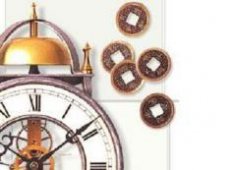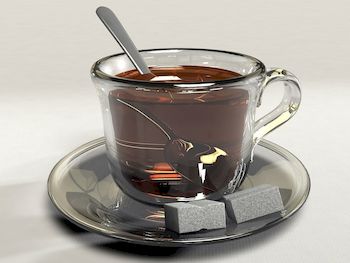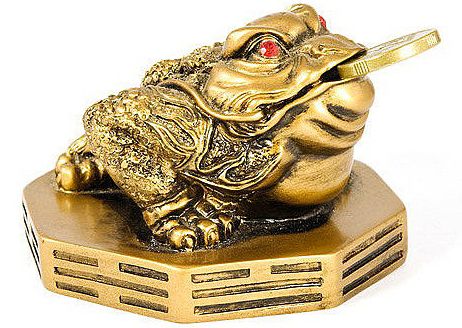
This material contains qualified answers to the most frequently asked questions from experts from the Feng Shui Academy (Russia).
What is the correct spelling: “feng shui” or “feng shui”, or “Feng-shui”, or maybe “Feng-shui”?
In modern Russian-language publications, this science is given all sorts of names! You can find it called “feng shui,” “feng shui,” and even “feng shui.”
Let's figure out what the rules are for spelling this word?
1. Why is “fen” written with an “e” and not an “e”?
The thing is, that's exactly how the word sounds in Chinese: with a hard “e.” Moreover, in some provinces of China, it's pronounced even harder, making it sound closer to “fon.”
2. What ending does the first part of the word have: “fen” or “feng”?
The official Chinese pronunciation is written using Latin letters. The pronunciation of our word is “feng.” The final “g” indicates that the word has a hard ending, without a soft sign (similarly, in the words Yang and Yin, the hard “Yang” is written as “Yang,” and the soft “Yin,” lacking a final “g,” is written as “Yin”). Therefore, we simply write “feng,” not “feng” or “fen.”
3. Should they be written together, separately, or with a hyphen?
The word “feng shui” should be written as one word, since according to the rules of word formation in the Chinese language, words of this kind have two equivalent roots and are written as one word.
( Editor's note: The Feng Shui Academy cites a Chinese language textbook, but word-formation rules in other languages are not carried over into Russian when borrowing these words. So far, this word has only appeared in the Newest Spelling Dictionary, with variants—declinable and indeclinable, masculine or neuter. However, the spelling option is limited to a hyphen, although other Russian language experts believe that, when in doubt, a continuous spelling is preferable. Let's wait and see what the Russian Academy of Sciences has to say, but for now, we'll stick with the dictionary.)
Where to start learning Feng Shui on your own?
If you want to study feng shui on your own, it's best to start by developing a sense of spatial harmony. You can practice this by visiting friends' apartments, feeling and analyzing your sensations. With some practice, you can even tell without calculations what's good and what's bad, and what changes need to be made to the interior. You can also learn to sense the earth's geology: faults and geopathogenic zones (sometimes frames are used for this) – all of this is essential for practicing feng shui.
Is it possible to study Feng Shui remotely?
Teaching feng shui requires direct contact between the teacher and students. Practical training on real objects is especially important. It's impossible to teach this remotely; there are too many nuances and subtleties…
How to correctly determine my element?
Your personal element is determined by your birthday, and calculating it requires familiarity with the Chinese calendar. Professional calculations use not just one element, but your entire personal energy map.
How to use the Wandering Stars method?
The Flying Star Method (erroneously called “Wandering Stars” in literature) was developed and used in China to calculate the energy of detached houses with entrances located in the center of the building's façade. In its original form, it is not suitable for calculating the energy of modern residential spaces! Unfortunately, in our practice, we often observe that conclusions drawn from popular books do not reflect the actual energy situation. People try to apply this method to their apartments, which, on the contrary, leads to a deterioration in their quality of life. Feng Shui Academy specialists use other Flying Star methods in their work, which are suited to the specifics of modern architecture. The calculations in these methods are much more complex and require significant preparation.
True Feng Shui begins where a specialist is able to transform unfavorable influences into favorable ones.
The Feng Shui school known as the Pyramidal School incorporates knowledge from various fields of modern science and technology. The more scientists gain knowledge about the world around us, the larger the Feng Shui pyramid grows. The Pyramid School utilizes knowledge and insights from psychology, biology, sociology, culture, philosophy, physics, and the uniqueness of the individual.
The pyramidal feng shui positions are flexible and practical, adapting to changing times and circumstances. If it's difficult to create an environment that complies with the rules of classical feng shui, an alternative solution can always be found.
Let's consider how specific fields of science enrich the abstract feng shui pyramid. Psychology explains behavioral responses to a person's environment. Biology explains many human reactions to a particular location. Sociology also contributes by assessing the influence of society on the individual. Culture and philosophy interpret the system of beliefs that a person has developed over their lifetime. Physics explains universal phenomena in nature. The uniqueness of an individual, or more precisely, their life experience, determines the time period and is assessed and analyzed in the context of all the aforementioned aspects.
The Feng Shui Pyramid School, taking into account available scientific knowledge and experience, offers individualized solutions for specific problems. It also offers remedies for negative influences based on individual preferences and cultural traditions, and does not insist on the use of a specific classical method or corrective object for a specific situation.
Source: Feng Shui Academy





